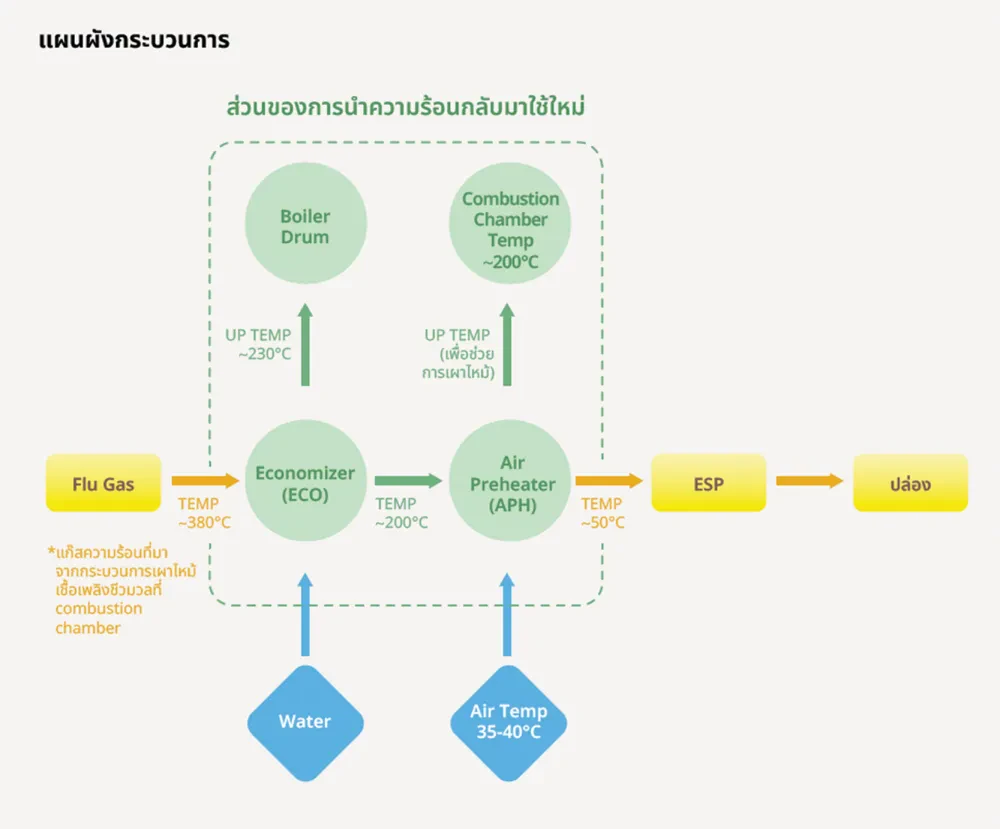Environmental
Waste Heat Recovery Project (Biomass Power Plant, Nakhon Ratchasima Province)
Waste heat recovery is a key strategy for enhancing energy efficiency, based on capturing heat normally lost in various processes and reusing it, employing heat exchanger technology crucial for transferring heat from the source to the medium needing heat, such as air. This not only reduces primary energy consumption but also lowers greenhouse gas emissions and environmental impact. Heat recovery can be applied to preheating air for steam generation or even providing heat in central heating systems, thus sustainably combining energy conservation and cost reduction.
Project Objectives:
- To increase energy utilization efficiency and reduce fuel consumption for electricity generation from biomass energy.
Main Benefits:
- Reduced fuel consumption: The efficiency of the heat recovery system is approximately 5-15%, or the heat recovery system can help reduce fuel consumption by about 10%.
- Reduced air pollution emissions: With less fuel combustion, the chances of air pollution and greenhouse gas emissions from fuel combustion decrease.
- Economic viability: Reduced fuel costs.
- Reduced environmental impact: Supports the Group's sustainability goals; efficient energy use reduces greenhouse gas emissions.

